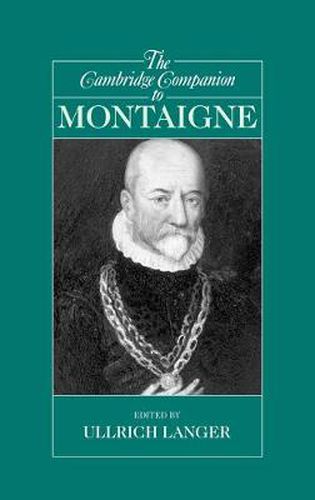Readings Newsletter
Become a Readings Member to make your shopping experience even easier.
Sign in or sign up for free!
You’re not far away from qualifying for FREE standard shipping within Australia
You’ve qualified for FREE standard shipping within Australia
The cart is loading…






Michel de Montaigne (1533-1592), the great Renaissance skeptic and pioneer of the essay form, is known for his innovative method of philosophical inquiry which mixes the anecdotal and the personal with serious critiques of human knowledge, politics and the law. He is the first European writer to be intensely interested in the representations of his own intimate life, including not just his reflections and emotions but also the state of his body. His rejection of fanaticism and cruelty and his admiration for the civilizations of the New World mark him out as a predecessor of modern notions of tolerance and acceptance of otherness. In this volume an international team of contributors explores the range of his philosophy and also examines the social and intellectual contexts in which his thought was expressed.
$9.00 standard shipping within Australia
FREE standard shipping within Australia for orders over $100.00
Express & International shipping calculated at checkout
Michel de Montaigne (1533-1592), the great Renaissance skeptic and pioneer of the essay form, is known for his innovative method of philosophical inquiry which mixes the anecdotal and the personal with serious critiques of human knowledge, politics and the law. He is the first European writer to be intensely interested in the representations of his own intimate life, including not just his reflections and emotions but also the state of his body. His rejection of fanaticism and cruelty and his admiration for the civilizations of the New World mark him out as a predecessor of modern notions of tolerance and acceptance of otherness. In this volume an international team of contributors explores the range of his philosophy and also examines the social and intellectual contexts in which his thought was expressed.